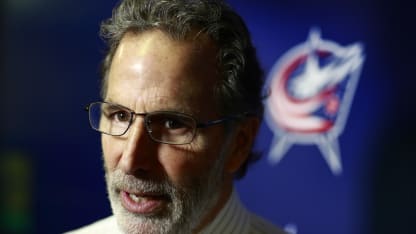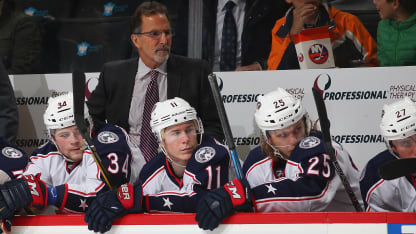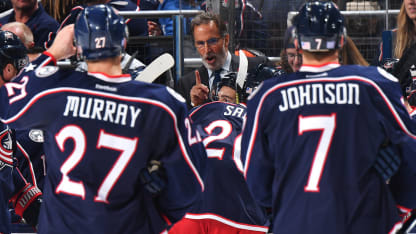If you talk to John Tortorella about the concepts of leadership in a hockey team you'll find out that he hates the title "coach."
"Leadership is not about you and thinking it's like a dictatorship," Tortorella said. "I think one of the most important aspects of being a leader is to empower people. I can't stand when players call me coach. I hate the title because it's all of us doing it together, first of all. And it takes you longer to peel away at being a team if they feel it's 'you' and 'us.'"
As he talks, Tortorella holds his hands up, palms parallel to his desk, the right ever so slightly higher than the left. He continues his thought and moves the right to emphasize its higher position and then moves the left as well.
"You're not going to last long as a leader if you have that ego of 'it's me' and then 'it's you."
Slowly, Tortorella moves his hands so they are at the same height. Equal. It represents how he wants to work within his team.
"You've got to mesh in so you have two-way communication and the bottom line is to make (the team) better people and make them better players."
Tortorella Leadership Series: Part I
Exploring the concepts of leadership and its development with CBJ head coach John Tortorella

© Jeff Vinnick/Getty Images

© Mike Stobe/Getty Images

© Jamie Sabau/Getty Images
















